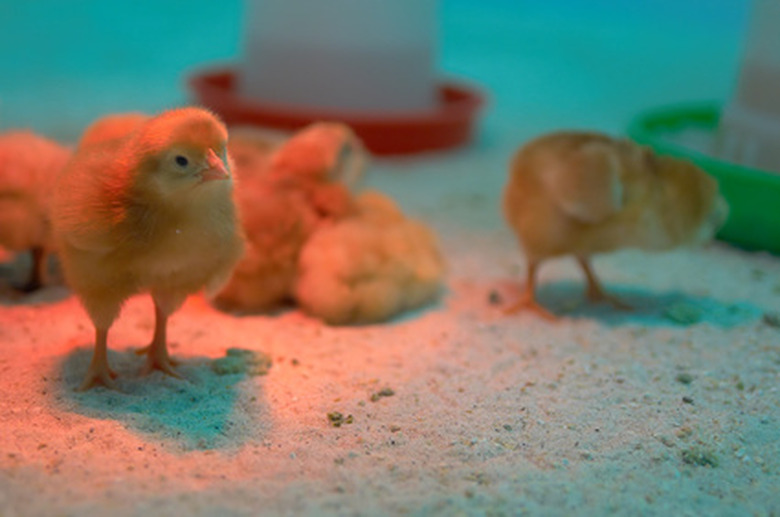How An Incubator Works
While incubators are used to encourage the growth of bacteria, premature infants and reptile eggs, the most common usage of an incubator is to hatch baby chickens on farms. Not all hens can hatch their eggs naturally, and when trouble arises, an incubator can act as a surrogate parent.
Temperature Control
Temperature Control
Warmth is the most obvious function an incubator provides. As chickens hatch best around 100 degrees Fahrenheit, an incubator becomes an independent, controlled environment where it can remain at that temperature for as long as needed. When dealing with chickens, an incubator's heat would act as a hen's warmth when she sits on her eggs.
Air Circulation
Air Circulation
Oxygen flow and circulation is important for the growth of most organisms, and eggs get plenty of it when they are being hatched naturally. Since an incubator is an environment with a controlled temperature, it will most likely be an enclosed space. As enclosed spaces do not allow oxygen to flow through them, an incubator will have ventilation and fans to encourage fresh, warm oxygen to flow over the eggs.
Humidity Control
Humidity Control
A hen will also provide humidity control when she sits on her eggs and will know exactly how much moisture they should be losing. An egg will lose up to 12 percent of its weight through the process of incubating and humidity controls how much of this weight is lost over time. The humidity of an incubator must be monitored by the individual incubating the eggs, as some may require more or less humidity due to shell thickness.
Cite This Article
MLA
Wood, Rowan. "How An Incubator Works" sciencing.com, https://www.sciencing.com/incubator-works-7491079/. 22 November 2019.
APA
Wood, Rowan. (2019, November 22). How An Incubator Works. sciencing.com. Retrieved from https://www.sciencing.com/incubator-works-7491079/
Chicago
Wood, Rowan. How An Incubator Works last modified March 24, 2022. https://www.sciencing.com/incubator-works-7491079/
